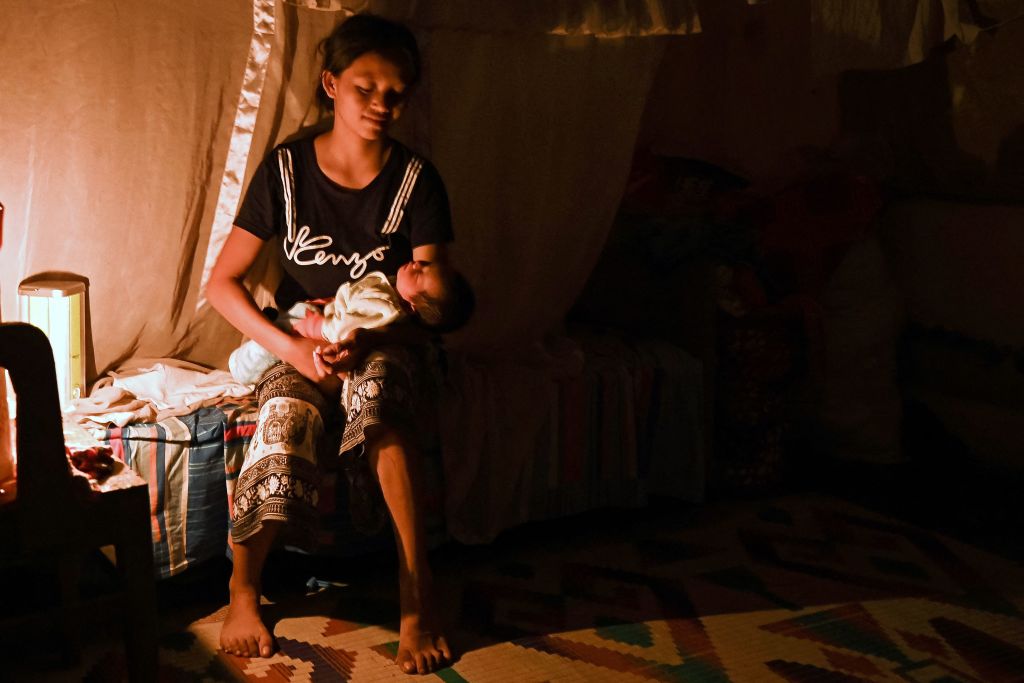By Dr Arun Mitra
People of Manipur have a glorious history of resistance against the British imperialism. They struggled hand in hand with the Indian National Army (INA) led by Subhash Chandra Bose to free the country from the yolk of colonialism. But the state of Manipur is in crisis these days. Insensitivity of the government towards the state was apparent for a long time, but silence of the Prime Minister even after the video showing women being paraded without clothes went viral on 19th July 2023 proves the point. This insensitivity led to deterioration of the situation; as a result the violence continues unabated.
Health is a major victim under such circumstances. People lose their life, get injured and develop mental stress. It is in this connection that a five member team of Indian Doctors for Peace and Development (IDPD) including two women doctors visited relief camps in the valley and hills of Manipur on 1st and 2nd September 2023 in both Meitei and Kuki areas to assess the health conditions in the relief camps.. The team members had come from Punjab, Bihar, Tamil Nadu and Telangana. The team visited the relief camps in Khumanlankpak sports hostel in Imphal district and IIT relief camps under Sapormeina Primary Health Centre (PHC) in Kangpokpi District in hill areas. There are 334 relief camps in Manipur at present. The team of doctors met inmates and nodal officers of the relief camps, officials of health department, workers of Civil Society organisations and officers of district administration.
It was observed that the referral systems for seriously ill patients in the relief camps in hilly areas are far from satisfactory. The displaced people in the hills of Manipur informed us that they had to travel to Nagaland covering a distance of up to 150 KMs to Kohima or Dimapur to get medical assistance in case of even moderately ill patients. Some of them even travel to Assam for their medical needs. Earlier, before the ethnic violence, they were referred to medical colleges in Imphal for better treatment. Now the movement of citizens from hills to valley and vice versa is impossible due to on-going ethnic conflict in Manipur.
Kangpokpi district hospital presently has neither an operation theatre nor blood storage facility. Manipur State is also facing acute shortage of specialists and other doctors and health workers. Vast majority of Specialist doctors and the medical college hospitals of the state are located in Imphal district (3 medical colleges) and 4th at Churachandpur district in the hills is at beginning stage.
As there is crowding in the camps the chances of Measles epidemic are very lightly in such situations it is imperative that children be immunised against Measles. The team found that no special immunisation drives especially against Measles has been undertaken in the visited relief camps. Measles Vaccine Immunisation drive in children above 9 months along with Vitamin A oral suspension is imperative for relief camps according to United Nations Humanitarian Commissioner for Relief (UNHCR) SPHERE standards.
Nutritional requirements of the peoples are far from being fulfilled. The inmates and nodal officer of a relief camp in the valley said that no green leafy vegetables/ eggs/ meat/fish has ever been supplied in the ration of inmates by the government; although, local community, Civil Society Organisations and few individuals provide few vegetables sometimes. Another nodal officer in a relief camp in hills told that they get one egg per inmate once every 13 days, but green vegetables are not supplied. Rice, Dal, Potatoes and cooking oil constitute the bulk of ration supply in the relief camps. The absence of green leafy vegetables and animal proteins in the diet of children for last four months may lead to night blindness which is caused by Vitamin A deficiency.
Availability of potable drinking water and water for bathing/washing/in toilets are not sufficient in quantity. Sanitation needs to be improved by many folds. Supply of Sanitary napkins to maintain good menstrual hygiene in relief camps is insufficient. There has not been fogging for mosquito control in and around relief camps which threatens the danger of spread of Dengue and Malaria.
The inmates informed that they are facing lots of mental stress by staying in relief camps for the last 4 months and they are not sure when they will go back to their homes or will they ever go back to their homes? Children are missing their schools and friends adding to their worries. Many children are having nightmares. These are sign of Post Traumatic Stress Order
We found patients of Non Communicable Diseases like – Diabetes, High Blood pressure, Chronic Kidney Diseases etc in the relief camps. A couple of patients required haemodialysis of the patients in the hills.
Much needs to be done to allay the situation. There is urgent need for robust referral systems after triage from primary health centres to higher relief centres both within the Manipur State and neighbouring state should be put in place at the earliest. Fabricated Operation Theatres should be made operational at district and sub district level with immediate effect. Blood storage units should be started around relief camps after cluster formation.
Internet services should be restored in all health facilities around relief camps so that tele-medicine services can be available to the inmates of relief camps at the nearest health facility. These tele-medicine facilities can also be used in training of Basic doctors in performing Peritoneal Dialysis (for Renal failure patients) and other skills like use of Ambu bags in case of Respiratory Distress Syndrome among children, counselling of mothers for breastfeeding of new born children etc. Both central and state governments should implement the UNHCR SPHERE standards on meeting the health needs of the displaced people sheltered in relief camps.
A strong medicine and vaccine supply system should be made functional and a real time monitoring of the stocks of medicine at ground zero level should be done. Immunisation against Measles and providing Vitamin A supplement to children should be undertaken immediately. Supply of good nutritious food like green leafy vegetables, milk, eggs, meat, fish should be ensured for all categories of the inmates in the camps. Fogging for mosquito control should be done in and around relief camps should immediately be undertaken.
Mental health issues are invariably ignored in such situations. There is urgent need for psychological counselling of inmates so as to prevent Post Trauma Stress Disorder. This should be a regular feature in the relief camps.
There is a huge lack of trust among people. So to create mutual brotherhood and trust between Kuki and Meitei groups a lot of work needs to be done. Peace committees should be formed to prevent violence. Constructive dialogue between the stake holders should be initiated. The government will have to be sensitive and take initiative about these things and take constructive steps along with people’s organizations. (IPA Service)

 Can India Emerge As The Second Largest Economy Of The World In 2047?
Can India Emerge As The Second Largest Economy Of The World In 2047? 